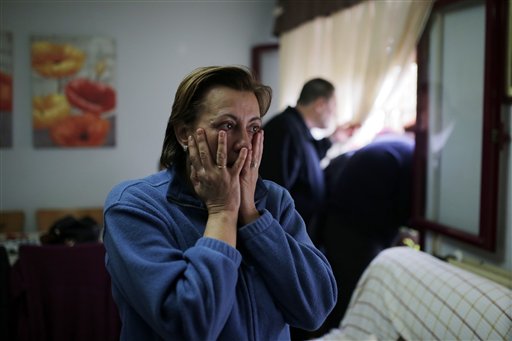(AP) Eurozone unemployment reaches new record high
By JUERGEN BAETZ
Associated Press
BRUSSELS
The number of unemployed in the 17-nation eurozone reached a record high in September as the bloc’s nascent recovery failed to generate jobs, official data showed Thursday.
The ranks of the jobless swelled by 60,000 to a record 19.45 million, according to Eurostat, the European Union’s statistics agency. Though the unemployment rate remained steady at 12.2 percent, the previous month was revised up from 12 percent.
A sharp and unexpected drop in inflation also cast doubts over the recovery of the eurozone, which just emerged from recession, and put pressure on the European Central Bank to act. The euro dropped sharply, from above $1.3700 before the news to about $1.3615 in afternoon trading.
By contrast, the Federal Reserve in the U.S. this week hinted it might start tightening its monetary policy in coming months as growth proves robust and the labor market improves.
Ernst & Young analyst Marie Diron said economic activity in the eurozone will remain slow and unemployment high until the bloc finishes cleaning up its banking sector to restore confidence and boost lending.
The ECB has already cut its key interest rate to a record low to spur lending. But banks, companies and households are still too afraid to lend or borrow money.
The ECB may be pushed into action eventually if the inflation rate keeps dropping. Eurostat said the annual inflation rate fell to 0.7 percent in October from 1.1 percent a month earlier, marking its lowest level in about four years. The ECB is tasked with keeping inflation close to, but below 2 percent.
While other analysts think a rate decrease is unlikely in coming months _ not least because of resistance from powerful ECB players such as Germany’s central bank _ the ECB still has other means at its disposal.
It can, among other things, provide more cheap loans to banks to improve their finances and encourage them to lend. It already issued such loans three times, helping stabilize the financial system, and ECB President Mario Draghi hinted several times in recent months that the central bank might consider issuing another round.
A particularly gloomy stat was on youth unemployment _ it rose to 24.1 percent from 24 percent in August.
It was lowest in Germany and Austria, with 7.7 percent and 8.7 percent, and highest in Europe’s southern economies, which have been hit hard by the debt crisis and government austerity measures. They were around 57 percent in Greece and 56 percent in Spain.
The overall unemployment rate showed similar disparities. Germany and Austria had low rates of 5 percent. By contrast, joblessness was 26.6 percent in Spain. In Greece, where the latest figures available were for July _ it stood at 27.6 percent.
The unemployment rate for the wider 28-nation European Union remained unchanged in September at 11 percent.
___
Follow Juergen Baetz on Twitter at http://www.twitter.com/jbaetz
Eurozone Unemployment Reaches New Record High

COMMENTS
Please let us know if you're having issues with commenting.